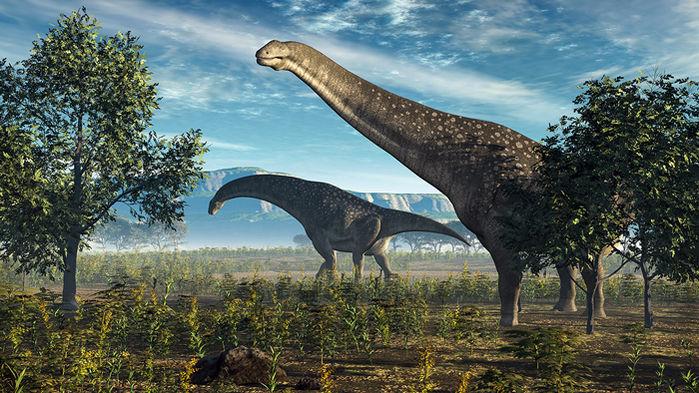India’s Paleontology — A Dying Science

Image Courtesy: Science
Indian paelontologists are facing a myriad of issues in terms of both excavation of fossils, and preservation of them. Despite being home to some remarkable paleontological resources, such as the site where the first ever dinosaur fossils in Asia were discovered, it is a field facing widespread neglect. A recent report in the magazine Science talks about the different challenges in front of paleontology today.
On the one hand, researchers going to different villages and sites for field work are often treated with hostility and suspicion. Because of land grabs, which are often state supported, locals are always vary of outsiders, which can result in a cut in access to fossil sites.
The other issue is the lack of legal protection to the few sites that have been identified as being rich in fossils. For instance, in the 1980s in Gujarat, the blasting at a cement factory led to the unearthing of what the workers thought were ancient cannon balls. Investigations by a team led by Dhananjay Mohabay from the Geological Survey of India revealed that those were actually dinosaur eggs. Thousands more of such eggs were discovered after examining further. The researchers also found the first evidence of snakes preying on dinosaur hatchlings.
Soon after these discoveries, the area began to be looted by the locals, resulting in establishment of a trade of dinosaur eggs in which they were being sold for pennies. Although in 1997, this site and the areas surrounding it were declared as Balasinor Dinosaur Fossil Park, poaching still continued. Today, most of the fossils are gone. Mohabey said, “The majority of critical fossils are lost forever. Sometimes I literally wish I had not have discovered the site.”
Since there is no legal protection, access to fossil sites is under arbitrary control of the landowners. One example is the Vastan coal mine in Gujarat, called by researchers as a fossil gold mine. It has been the one to some of the oldest mammals’ fossils in South Asia, discovered by researchers on multiple field trips which they were previously allowed to conduct. Since 2015, mining officials have barred entry to the mines. In fact, many fossil sites get destroyed in the mining process.
For many researchers, the other cause of worry is the preservation of fossils. Paleontologist Guntupalli V. R. Prasad is unsure about what to do with his collection of fossils once he retires. He does not wish to donate them to the fund-starved genealogy department of his university, Delhi University, as “all major instruments are out of order.” There are no funds for expeditions or training, and faculty positions have also been vacant since long. He is also worried that after his retirement, his collection might be thrown away by new people, or rot away in some storage, a common fate.
He is also unwilling to hand them to the Geological Survey as that makes them inaccessible to researchers. The best option, he feels, is to deposit them in a well-curated museum abroad as long as India lacks similar facilities.
Other Indian and foreign scientists too are lobbying for the creation of such facilitates in the country which can be similar to the Smithsonian institute. Apart from funding and legal protection of sites, however, scientists feel what is more important is for the public to respect India’s paleontological wealth.
Get the latest reports & analysis with people's perspective on Protests, movements & deep analytical videos, discussions of the current affairs in your Telegram app. Subscribe to NewsClick's Telegram channel & get Real-Time updates on stories, as they get published on our website.
























